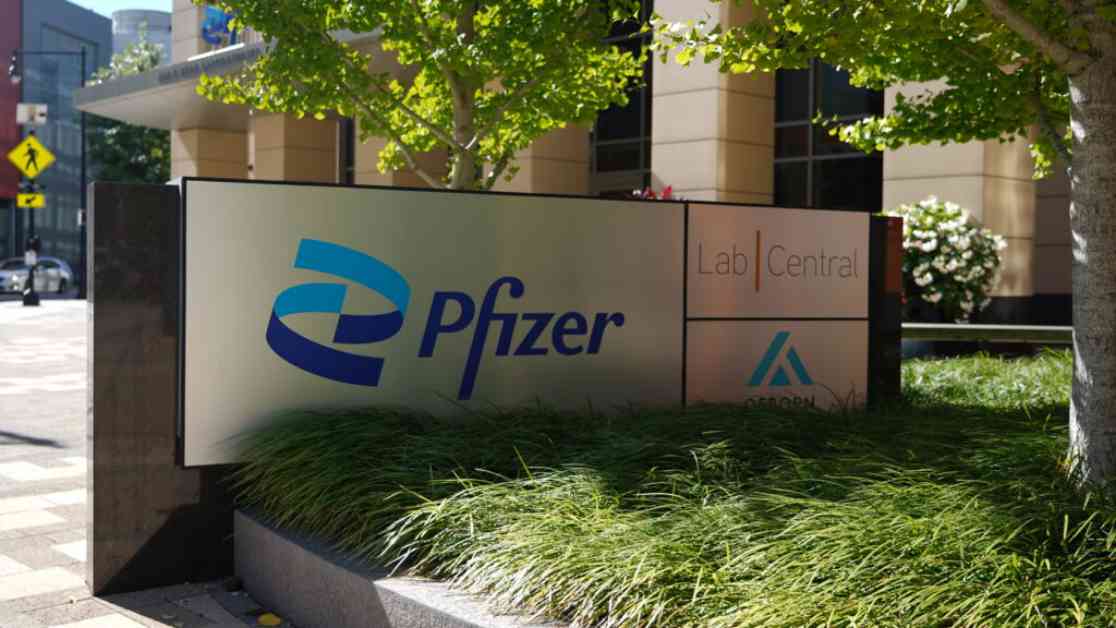Pfizer’s Braftovi: Extending Survival in Colorectal Cancer
Pfizer has recently announced a groundbreaking development in the world of oncology with their targeted cancer drug, Braftovi, showing a significant improvement in survival rates for patients with metastatic colorectal cancer. This particular form of cancer tests positive for a specific mutation in the BRAF gene, known as the V600E mutation. The news of this clinical advancement has sent ripples through the medical community, offering new hope for those affected by this aggressive disease.
The Story Behind Braftovi
Originally designed as a treatment for metastatic melanoma in combination with another drug called Mektovi, Braftovi has now proven its efficacy in the realm of colorectal cancer. The pairing of Braftovi and Mektovi brought in $173 million in revenue in the third quarter of 2024, primarily in the United States. Researchers have discovered that the V600 mutation in the BRAF gene also plays a pivotal role in colon cancer, opening up new possibilities for treatment modalities.
Pfizer’s chief oncology officer, Roger Dansey, expressed optimism about the future of Braftovi in a press release, stating that the Braftovi regimen is poised to become the new standard of care for patients with metastatic colorectal cancer with a BRAF V600E mutation. The drug received accelerated approval from the FDA in December 2024 based on earlier data demonstrating significant tumor reduction.
Insitro’s Pivot in Oncology Research
In a surprising turn of events, Insitro, a prominent machine learning biotech company led by computer scientist Daphne Koller, has decided to halt its oncology research efforts. Oncology was one of the three key research areas that Insitro was focusing on, with the company receiving substantial financial backing from venture capital firms. The decision to shift away from cancer research resulted in the departure of four members of the oncology team.
Insitro, which has positioned itself as a meticulous and careful player in the biotech industry, has maintained its commitment to neuroscience and metabolic disease research. The company has forged partnerships with industry giants like Gilead, Bristol Myers Squibb, and Eli Lilly to explore new avenues in drug discovery. Despite this strategic shift, Insitro remains dedicated to its core mission of leveraging AI to revolutionize drug development.
The Impact of Trump’s Tariffs on Healthcare Costs
President Trump’s recent tariffs on Canada, Mexico, and China are anticipated to have far-reaching implications, including in the realm of healthcare. The tariffs are projected to drive up costs for pharmaceutical ingredients, medical devices, and hospital supplies, potentially exacerbating drug shortages and inflating prices for consumers. Generic drug manufacturers, in particular, may struggle to absorb the additional costs, leading to potential market exits.
Experts caution that while reducing dependency on China for pharmaceutical ingredients may enhance long-term supply chain resilience, the immediate consequences of tariffs could be severe. Medical supply gaps could widen, posing challenges for healthcare providers and patients alike. The debate around the impact of tariffs on domestic manufacturing continues to unfold, raising questions about the future of the healthcare industry in the United States.
The Rise of AI in Drug Discovery: A Chinese Perspective
China has emerged as a global leader in AI-driven drug discovery, with companies like DeepSeek making significant strides in leveraging technology to advance healthcare innovation. The rise of DeepSeek, based in Hangzhou, has underscored China’s rapid progression in the realm of AI-driven drug development. Other companies, such as XTalPi and Insilico Medicine, have also made notable advancements in this space, securing partnerships with industry heavyweights like Eli Lilly.
One China-based drug executive remarked that Chinese high-tech companies are not just catching up but redefining the landscape of biotech. The infusion of AI into drug discovery processes has revolutionized the industry, offering new possibilities for precision medicine and targeted therapies. As China continues to invest in cutting-edge technologies, the global biotech sector is witnessing a seismic shift in innovation and research.
In conclusion, Pfizer’s Braftovi represents a significant milestone in the fight against colorectal cancer, signaling a new era of targeted therapies and precision medicine. The decision by Insitro to pivot away from oncology research underscores the dynamic nature of the biotech industry and the strategic considerations that companies must navigate. Trump’s tariffs have cast a shadow of uncertainty over healthcare costs, prompting stakeholders to reassess the implications of trade policies on patient care and industry sustainability. Amidst these developments, China’s investment in AI-driven drug discovery serves as a testament to the transformative power of technology in advancing global healthcare.


















